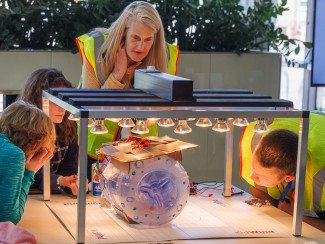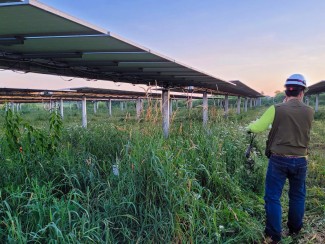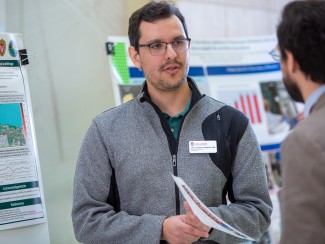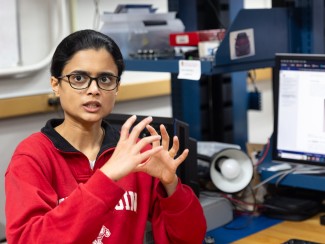
In the 1970s, rising Brazilian sugar prices opened the door for domestically produced high fructose corn syrup to gain a foothold in the American food manufacturing industry. The sweetener was initially made with the intent of substituting it for sugar in existing applications. And it was—at first, says Rob Anex, a professor of biological systems engineering at the University of Wisconsin–Madison. But companies quickly began to develop novel uses for the versatile liquid sweetener.
“When sugar was expensive and someone said we can make high fructose corn syrup, they were really just thinking of what we used sugar for already. But once you have it, you discover that now you can make soda pop more easily. Or bread,” Anex says. “You couldn't have imagined the way it would spread.”
Now nearly ubiquitous, the corn sweetener illustrates one way that new products or processes can have unforeseen, widespread impacts on markets and industries. Anex explores similar questions in the growing biofuel industry, studying the economic and environmental impacts of renewable fuels and chemicals on agricultural and industrial systems.
He will now lend this expertise to the U.S. Departments of Energy and Agriculture as a newly appointed member of the Biomass Research and Development Technical Advisory Committee. The committee comprises experts from academia, industry, nonprofits and local government and provides guidance to a federal board that coordinates strategic planning and funding decisions around research and development on plant-based fuels, products and power.
Biomass has the potential to address several big challenges facing the country, Anex says, including energy security and resilience, climate change and the need for new and safer chemicals for manufacturing, agriculture, medicine and more.
Research centers such as the Great Lakes Bioenergy Research Center and the Center for Biorenewable Chemicals, formerly based at Iowa State University, are working to address these issues while simultaneously creating new plant-based opportunities.
“Petroleum came from plants. So it makes sense that we can turn biomass into anything that we turn petroleum into,” Anex says. “But there are many potential benefits and capabilities we can get out of biomass—additional functionality, better price, lower environmental impact.”
In many cases, making products such as chemicals from plant material rather than petroleum is not that hard, he says. But doing so will change the markets associated with those compounds, with potentially far-reaching economic and environmental effects.
“When you introduce a new bio-based product you shift the demand for the product, but also for the agricultural materials and other inputs that go into the new product. This shifts multiple markets and leads to changes in production and land use that may have unforeseen impacts on a wide range of people and products,” Anex says.
He uses environmental models and system-level approaches such as life-cycle assessment and technoeconomic analysis to explore possible outcomes of various policies and technologies.
“You can’t change one thing without changing something else,” he says. “Figuring out those indirect and often unexpected impacts is important, and really interesting.”
Anex will serve the committee as an expert on energy and environmental analysis through December 2021.





